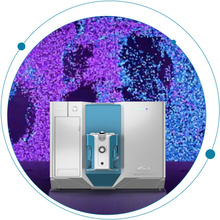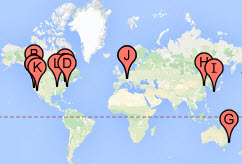Reproducibility is one of the key tenets of the scientific method. But in a recent survey published in Nature, more than 70% of researchers were not able to reproduce another scientist’s experiments, and more than half could not reproduce their own experiments1. While the reasons for this are many, at least some of them stem from issues inherent in data collection.
Tags

Detecting low levels of drugs and their metabolites in hair and nail samples using LC-MS/MS
You probably have heard of testing blood and urine samples for the presence of drugs and their metabolites. But do you know about the benefits of hair and nail analysis? In a recent webinar, Tina Binz, Deputy Head of the Center for Forensic Hair Analysis, University of Zurich, discussed the benefits of developing comprehensive and sensitive LC-MS/MS for the detection of low-level drugs and metabolites in keratinized matrices.
Automation integration for the Echo® MS system
The Echo® MS system is specifically designed to be compatible with a variety of automation options to allow labs the flexibility to personalize their setup to meet their specific needs. To help you make the best decisions for your own lab, here are the answers to some...

Top questions about the exposome of PFAS revealed
According to the CDC, the exposome is “the measure of all the exposures of an individual in a lifetime and how those exposures relate to health.”

Top Five Trends for Biomedicine in 2021 for Bio Techniques
From multi-omics and big data to...

Breaking down the SCIEX Triple Quad™ 7500 LC-MS/MS System – QTRAP® Ready
Sensitivity and robustness carry different meanings in the world of mass spectrometry. Generally, sensitivity refers to an instrument’s ability to achieve lower limits of detection (LOD). Robustness, on the other hand, refers to an instrument’s ability to consistently...

A rising star in food allergen research: proteomics of shellfish allergen
It’s important to know what you’re eating, especially if you suffer from a food allergy.
About 220 million people worldwide live with a food allergy.1 These numbers, along with the complexity and severity of conditions, continue to rise. In America, there are about 32 million food allergy sufferers—5.6 million of those are children under the age of 18.2.2 That’s 1 out of every 13 children, or about 2 in every classroom. From a financial perspective, the cost of food allergy childcare for US families is up to $25 billion

“Bottoms Up” Proteomics
Ahhhh beer. It's a ubiquitous drink found in over 90% of all countries around the world. Since the dawn of civilization, man has celebrated with beer where it can make even the most introverted person suddenly dance a little jig or belt out a top 40 song. But other...

The Ultimate Selectivity for Peptide and Protein Quantitation
There’s no doubt about it, biopharma drug development is experiencing phenomenal growth and presents a variety of challenges not experienced in small molecule development. Some of these challenges are in the selective and sensitive quantitation of peptides and...

Multi-Laboratory Study Highlights the Quantitative Reproducibility of SWATH Acquisition (Nature Communications Paper)
Reproducibility is one of the key tenets of the scientific method. But in a recent survey published in Nature, more than 70% of researchers were not able to reproduce another scientist’s experiments, and more than half could not reproduce their own experiments1. While the reasons for this are many, at least some of them stem from issues inherent in data collection.

SCIEX Lands HUPO Science and Technology Award
We are pleased to congratulate its research scientists Stephen Tate and Ron Bonner (retired) for being awarded this year’s Science and Technology award at HUPO 2017 in Dublin Ireland. The Science and Technology Award at HUPO recognizes an individual or team who were key in the commercialization of a technology, product, or procedure that advances proteomics research
No Results Found
The page you requested could not be found. Try refining your search, or use the navigation above to locate the post.
No Results Found
The page you requested could not be found. Try refining your search, or use the navigation above to locate the post.